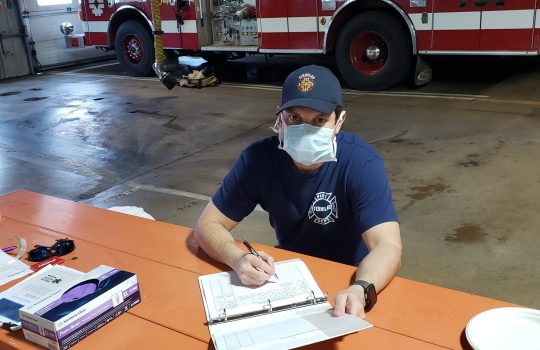Mammoths, mastodons and the fruit they left behind at Fermilab
If you live in the Chicago suburbs and have ever taken a walk on the Fermilab hike-and-bike trail along Batavia Road, you’ve probably noticed large trees with long, slender bean pods, which — even after they fall to the ground — are ignored by wildlife. Not that long ago, mammoths, mastodons and giant ground sloths roamed the Fermilab grounds and feasted on these bean pods, along with the fruit of two additional species that still can be found growing on site.



